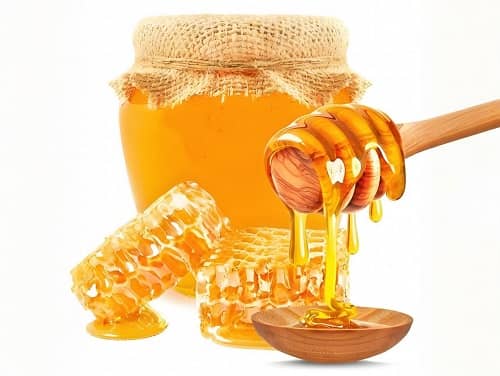Honey, a nutrient-dense natural food, offers numerous health benefits. However, there are many considerations when consuming it. If not consumed properly, honey may not only fail to provide health benefits but could also cause harm. Here are some key precautions to keep in mind when eating honey.

Table of Contents
- Honey Consumption Temperature
- Avoid Raw Honey
- Do Not Store Honey in Metal Containers
- Infants Should Not Consume Honey
- Honey Storage and Expiration Tips
1. Honey Consumption Temperature
While honey is rich in nutrients, its temperature is very important when consuming it.
Avoid using boiling water to mix honey, as the high heat destroys essential nutrients in honey, especially vitamins and enzymes.
It’s best to mix honey with warm water not exceeding 60°C to preserve its nutritional value.
2. Avoid Raw Honey
While honey itself is non-toxic, its toxicity depends on the type of nectar it is made from.
Certain plants, such as Rhododendron, Foxglove, Tobacco, Buttercup, etc., secrete toxins that could be absorbed by the bees, thus contaminating the honey.
Therefore, it’s advisable to avoid consuming raw honey, as it may contain harmful toxins.
3. Do Not Store Honey in Metal Containers
When storing honey, it’s important to avoid using metal containers.
Honey’s organic acids and carbohydrates, when acted upon by enzymes, can turn into acetic acid, which corrodes metal containers. This can increase the levels of lead, zinc, and iron in the honey, leading to spoilage and nutrient degradation.
It’s best to store honey in glass, ceramic, or plastic containers.
4. Infants Should Not Consume Honey
Infants should not consume honey, as it can be contaminated with botulism spores.
Botulism spores can survive in warm environments and even at high temperatures of 100°C. Since infants have an immature immune system, consuming honey contaminated with these spores may lead to botulism, a potentially fatal condition.
For infant safety, honey should be strictly avoided.
5. Honey Storage and Expiration Tips
Honey that is stored for too long may contain small amounts of nitrites or nitrates, which can cause poisoning if consumed.
It is best to avoid eating old or contaminated honey, and also to avoid consuming excessive amounts of honey over a long period, as this could negatively impact your health.
✅ Conclusion
Honey is a wonderful food, but it is important to consume it properly. Pay attention to storage, consumption temperature, and age restrictions to ensure you reap the full benefits of honey while minimizing any health risks.